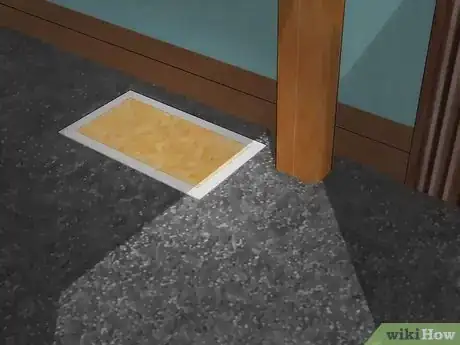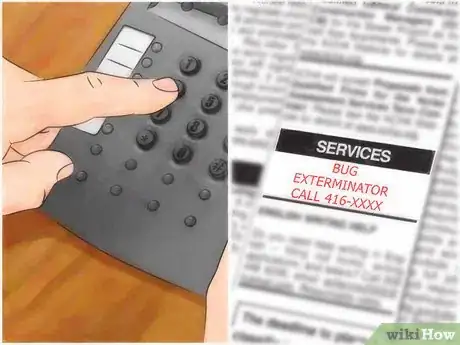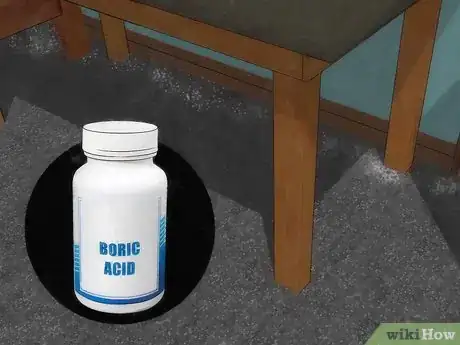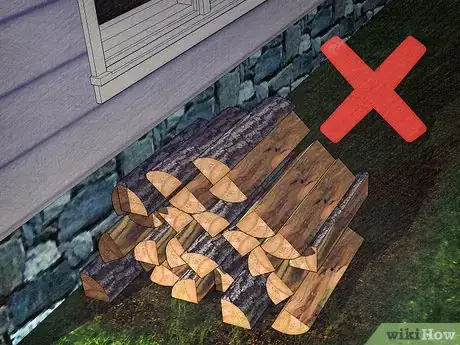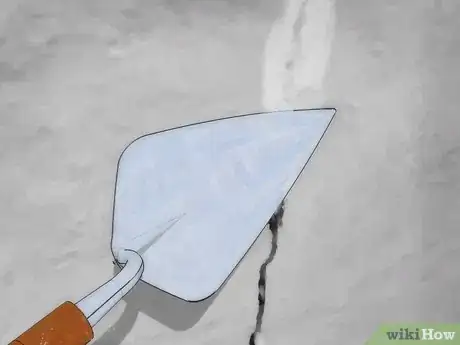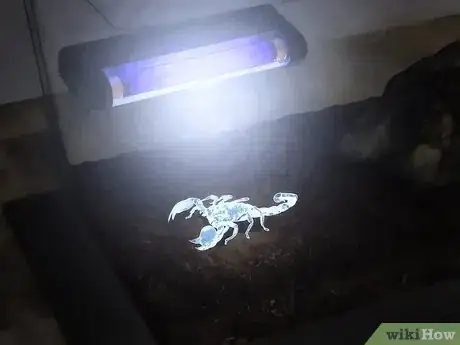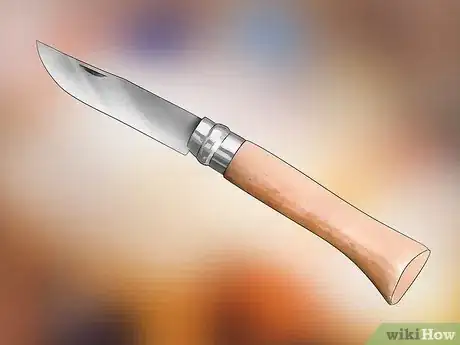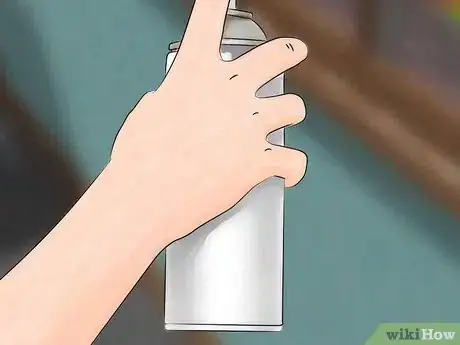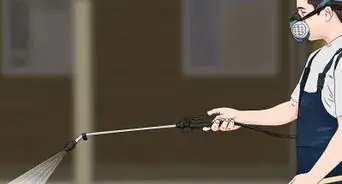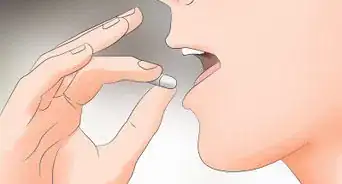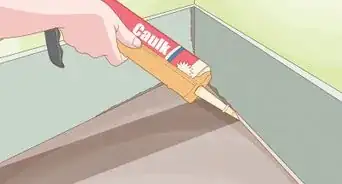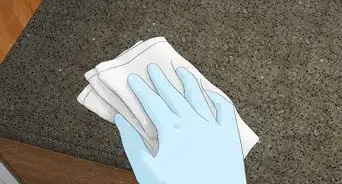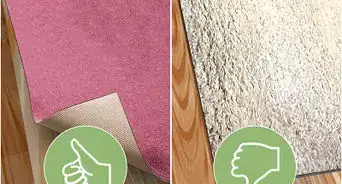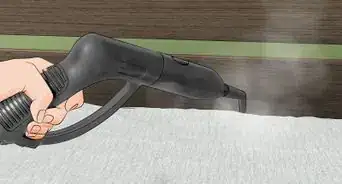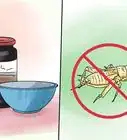This article was co-authored by Samuel Ramsey, PhD. Dr. Samuel Ramsey is an Entomologist and a researcher with the United States Department of Agriculture. Dr. Ramsey has extensive knowledge of symbiosis and specializes in insect disease spread, parasite behavior, mutualism development, biological control, invasive species ecology, pollinator health, and insect pest control. He holds a Bachelor’s degree in Entomology from Cornell University and a Ph.D. in Entomology from the University of Maryland. Dr. Ramsey’s research on bees has enabled researchers to develop targeted control techniques to restore honey bee populations worldwide. He also hosts a YouTube series called “Dr. Buggs.”
There are 9 references cited in this article, which can be found at the bottom of the page.
wikiHow marks an article as reader-approved once it receives enough positive feedback. This article received 47 testimonials and 95% of readers who voted found it helpful, earning it our reader-approved status.
This article has been viewed 748,256 times.
Scorpions are common household pests. These arachnids are typically found in the southern United States, with the largest varieties dwelling in desert regions. Scorpions prefer to stay in dark spaces during the day and come out at night to find food and water. You can get rid of them by hunting them at night, removing their sources of food and shelter, introducing predators, and using sprays. Read on to learn more about how to get rid of scorpions.
Things You Should Know
- Scorpion-specific insecticides, synthetic pesticides, and sticky traps can help you catch and kill scorpions.
- To prevent scorpions in the future, seal up cracks and holes, reduce excess moisture, get rid of other bugs that scorpions will want to hunt.
- When you spy a scorpion around your home, kill them with a knife, ant spray, tweezers, or just the bottom of your shoe.
Steps
Using Traps, Insecticides and Repellants
-
1Spray insecticide designed for scorpions. Spray an area 6 feet (2 yards) wide around the exterior of the house. Spray up to a height of 1 foot (.3 yards) on the foundation wall. Apply insecticide around the windows, doors, and baseboards inside the house. Spray basements, garages, and closets with insecticide. Apply insecticide to any stacked materials where scorpions may hide. Before spraying inside the house, make sure it is approved for indoor use. Also, consider children and pets safety guidelines. [1]
-
2Apply synthetic pesticide dust and wettable powder. These substances will kill scorpions before they are able to enter your home. Spread pesticide dust and wettable powder around electrical outlets and plumbing fixtures, and in attics. Fill in cracks with pesticide dust.[2]Advertisement
-
3Set out sticky traps. Sticky traps designed to catch insects or mice work well for trapping scorpions, too. Set them out around sources of water and in dark corners of your house. When you catch a scorpion, throw the trap away and set out another one.[3]
-
4Sprinkle cinnamon oil around the house. Cinnamon oil is a natural scorpion repellant. Sprinkle it in dark areas, windowsills, and around your baseboards to keep scorpions away.[4]
-
5Call a professional. If you continue to have problems with scorpions, call a professional pest control agency.[5]
-
6Introduce a cat or chicken to the household. Some cats like to hunt scorpions, so having one around can really help to keep the population down. Chickens, too, enjoy eating scorpions, so consider getting an outdoor chicken coop. Both of these animals can be stung and wounded by a scorpion, which can lead to large vet bills for treatment. [6]
Removing Food Sources and Sealing Your House
-
1Eliminate excess moisture. Scorpions enter homes looking for water. Keep floors, corners, closets, and crawl spaces dry and free of leaks. Refrain from allowing water to stand in puddles or containers near the exterior of your home.[7]
-
2Get rid of bugs in your house. Scorpions feed on insects, so if you have an issue with roaches, ants, or other bugs in the house, you'll need to solve that problem before the scorpions will go away.[8] Here are a few good ways to keep the insect population down in your home:
- Clean up crumbs and do dishes promptly so bugs don't have a food source.
- Sprinkle borax or diatomaceous earth around the baseboards and under the sinks in your home; these natural substances kill insects.[9]
- Consider spraying insecticides around your home to kill insects. Do research and approach this method with caution, since some insecticides are poisonous to humans and pets.
- Keep the population down outdoors as well, since scorpions prefer to live outside.
-
3Remove scorpion shelters. Scorpions like to hide in dark places, especially during the day. Get rid of structures in and around your home that could be used as a convenient hiding place by a scorpion. Take the following measures to keep scorpions from hanging around:[10]
- Store cardboard boxes on shelves instead of the floor.
- Don't keep clutter around your home or under the beds.
- Keep your closets and bedrooms neatly organized. Scorpions like to hide in shoes and piles of clothes on the floor.
- Outdoors, trim back bushes and foliage that scorpions can hide under. Get rid of piles of wood, rocks or yard clippings. Trim back vines and other potential hiding spots.
-
4Seal your home.[11] Scorpions can slip through an opening the size of a credit card. Sealing your home is an important method for keeping them from invading. In order to make sure your home is secure, take the following measures to seal the doors, windows and foundation:[12]
- Use caulk to fill in holes and cracks in your walls, baseboards, or the foundation of your home.
- Make sure your windows close tightly and the screens are sealed so scorpions can't climb in.
- Get door seals to prevent scorpions from coming in under the doors.
Hunting Scorpions
-
1Get the right equipment. The best way to get rid of scorpions as fast as possible is to hunt for them at night when they're most active. It's not for the faint of heart, but killing them one at a time is a good way to reduce the scorpion population around your home, fast. To hunt scorpions, you need the following equipment:[13]
- A black (ultraviolet) light. They glow in the dark, so you'll be able to see them clearly by using a black light to search them out. Get a flashlight or headlamp with a black light bulb.
- A tool you can use to kill them. In parts of Arizona, long-handled tweezers used to break the scorpions' exoskeletons are the weapons of choice. You can also use a long knife or wear a pair of heavy boots to step on them.
-
2Search around your property for scorpions. Look on exterior walls, at the bases of walls and fences, under bushes and other foliage, under rocks, and other outdoor cracks and crevices close to your home. Shine your black light in all of these areas to set scorpions aglow.[14]
- Scorpions don't normally reside in grass, so you probably won't find many there.
- You can also look indoors in your attic, along baseboards, and in any other areas where you've seen a scorpion.
-
3Kill the scorpions you find. Use long-handled tweezers, a knife, or the bottom of your boot to kill the scorpions. Then put them in a trash bag, tie it up and discard it with your regular trash.
-
4Use another hunting approach. Hunt at night with a UV flashlight and Raid ant and cockroach spray. Spray each scorpion directly with the spray. This spray has the fastest activation.
- If the scorpion is high up a wall or on the ceiling, spray with Raid wasp and hornet spray to reach.
Expert Q&A
Did you know you can get expert answers for this article?
Unlock expert answers by supporting wikiHow
-
QuestionWhere do scorpions like to hide?
 Samuel Ramsey, PhDDr. Samuel Ramsey is an Entomologist and a researcher with the United States Department of Agriculture. Dr. Ramsey has extensive knowledge of symbiosis and specializes in insect disease spread, parasite behavior, mutualism development, biological control, invasive species ecology, pollinator health, and insect pest control. He holds a Bachelor’s degree in Entomology from Cornell University and a Ph.D. in Entomology from the University of Maryland. Dr. Ramsey’s research on bees has enabled researchers to develop targeted control techniques to restore honey bee populations worldwide. He also hosts a YouTube series called “Dr. Buggs.”
Samuel Ramsey, PhDDr. Samuel Ramsey is an Entomologist and a researcher with the United States Department of Agriculture. Dr. Ramsey has extensive knowledge of symbiosis and specializes in insect disease spread, parasite behavior, mutualism development, biological control, invasive species ecology, pollinator health, and insect pest control. He holds a Bachelor’s degree in Entomology from Cornell University and a Ph.D. in Entomology from the University of Maryland. Dr. Ramsey’s research on bees has enabled researchers to develop targeted control techniques to restore honey bee populations worldwide. He also hosts a YouTube series called “Dr. Buggs.”
Entomologist
-
QuestionHow do scorpions get inside?
 Samuel Ramsey, PhDDr. Samuel Ramsey is an Entomologist and a researcher with the United States Department of Agriculture. Dr. Ramsey has extensive knowledge of symbiosis and specializes in insect disease spread, parasite behavior, mutualism development, biological control, invasive species ecology, pollinator health, and insect pest control. He holds a Bachelor’s degree in Entomology from Cornell University and a Ph.D. in Entomology from the University of Maryland. Dr. Ramsey’s research on bees has enabled researchers to develop targeted control techniques to restore honey bee populations worldwide. He also hosts a YouTube series called “Dr. Buggs.”
Samuel Ramsey, PhDDr. Samuel Ramsey is an Entomologist and a researcher with the United States Department of Agriculture. Dr. Ramsey has extensive knowledge of symbiosis and specializes in insect disease spread, parasite behavior, mutualism development, biological control, invasive species ecology, pollinator health, and insect pest control. He holds a Bachelor’s degree in Entomology from Cornell University and a Ph.D. in Entomology from the University of Maryland. Dr. Ramsey’s research on bees has enabled researchers to develop targeted control techniques to restore honey bee populations worldwide. He also hosts a YouTube series called “Dr. Buggs.”
Entomologist
Warnings
- Scorpions may sting if they feel they are being attacked. The sting of most scorpions found in homes is approximately as strong as a bee's or wasp's. Although most scorpion stings will not cause serious injury, see a doctor if you have been stung by a scorpion. It is particularly important to call a doctor if a small child has been stung.⧼thumbs_response⧽
- Wear a mask and gloves when spraying or spreading insecticide.⧼thumbs_response⧽
References
- ↑ https://www.aces.edu/blog/topics/home/scorpion-management-in-residential-homes
- ↑ https://agrilifeextension.tamu.edu/library/insects/scorpions/
- ↑ https://news3lv.com/news/local/tonight-at-7-scorpion-trackers
- ↑ https://agrilifeextension.tamu.edu/library/insects/scorpions/
- ↑ https://www.aces.edu/blog/topics/home/scorpion-management-in-residential-homes/
- ↑ https://news3lv.com/news/local/tonight-at-7-scorpion-trackers
- ↑ https://today.tamu.edu/2018/07/03/hot-dry-summer-has-scorpions-in-texas-heading-indoors/
- ↑ https://www.aces.edu/blog/topics/home/scorpion-management-in-residential-homes/
- ↑ http://npic.orst.edu/factsheets/boricgen.html
- ↑ https://hgic.clemson.edu/factsheet/scorpion-control/
- ↑ Samuel Ramsey, PhD. Entomologist. Expert Interview. 20 January 2021.
- ↑ https://www.mayoclinic.org/diseases-conditions/scorpion-stings/symptoms-causes/syc-20353859
- ↑ https://www.mayoclinic.org/diseases-conditions/scorpion-stings/symptoms-causes/syc-20353859
- ↑ https://www.aces.edu/blog/topics/home/scorpion-management-in-residential-homes/
About This Article
To get rid of scorpions, start by sprinkling cinnamon around your baseboards and windowsills to repel scorpions and discourage them from entering your house. Next, sprinkle borax around under your sink to kill the insects that scorpions feed on. Then, clean up any clutter and make sure to keep your floor clear of piles of clothes so that scorpions don’t have any convenient hiding places. For tips on how to capture scorpions in your home using sticky traps, read on!


